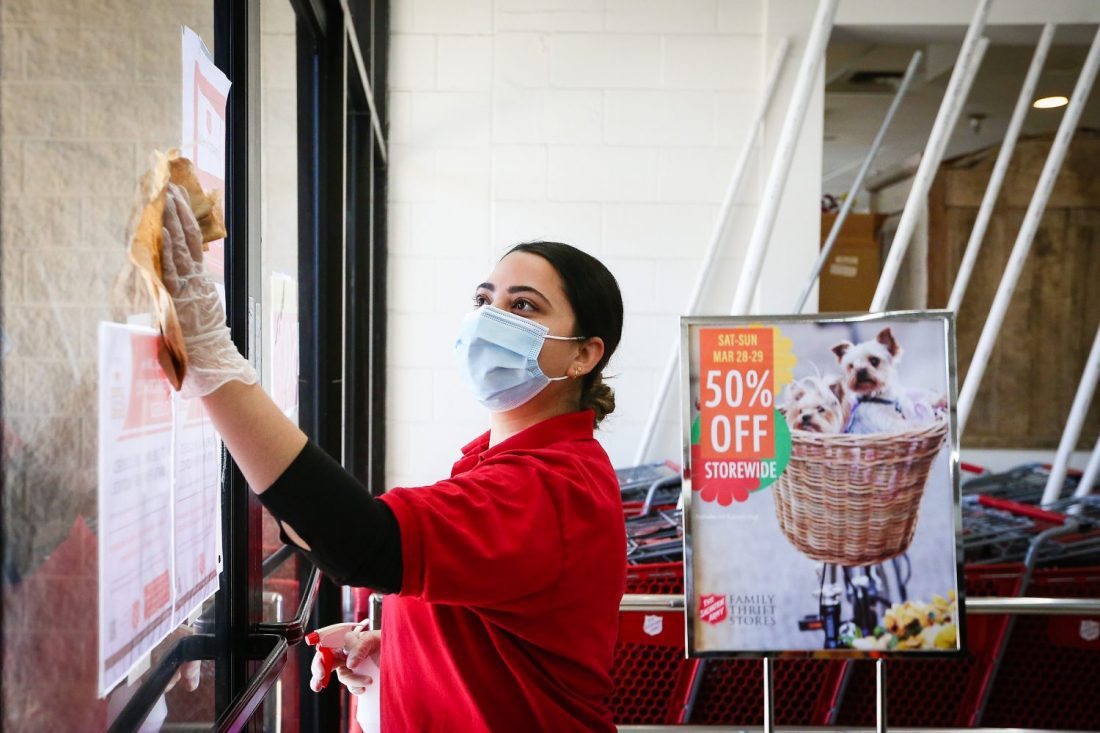IN PROCESS
 “Dear God, how can these people fix me after 23 years of drug use? How can they possibly change me?”
“Dear God, how can these people fix me after 23 years of drug use? How can they possibly change me?”
The young woman, with trepidation, surveyed her new surroundings at the San Francisco ARC. Accustomed to life on city streets–“sleeping in cardboard boxes and cockroach hotels”–Susan Foreman was awed by her first glimpse of Pinehurst Lodge. “Oh, my gosh! This is beautiful!” she exclaimed.
Pushing back from her desk with a laugh, Susan, 42, recalls with delight that poignant moment in September, 1993. “I was scared, very nervous.” Confronted with a realization of the life or death challenge before her, she remembers couching the remainder of her prayer in words of submission: “Dear Lord, I’m going to give it up to you and let you guide me. That’s how I can do this. I’ll just follow your path.”
Over the ensuing months, recalls Susan, “I was spiritually fed. I had dismissed God when I was out there on the streets because I was ashamed to call on him. The Salvation Army put him back in my life.”
Today as program manager for Community Services of Sonoma County, CA, Susan’s job calls for her to reach out to street people in the jails. “I’ve been there. I’m not ashamed of what I did–addiction is a disease. However I know that with help, an addict can have a wonderful life.”
Confidently, Susan shares the travails of her difficult past, as well as the joys and final triumphs. A child of divorced parents, she began using drugs and alcohol at 13. Married at 16, she dropped out of school but divorced not long after.
Following were a series of broken relationships–“I was afraid to be alone.” At 27, she and a male friend moved to Las Vegas to “kick heroin” together. Off the drug for a year, “he went out one night and used. Thinking he could use as much dope as before, he overdosed and died.” Deeply devastated by her friend’s death, Susan began using cocaine again.
Now on the streets “I learned to survive living in cardboard boxes, constantly in and out of jail.” Raped and beaten, she was visited in jail by Pat Nicodemus, a Sonoma County social worker. Pat, who visited Susan many times, offered help and recommended that she check into The Salvation Army program. Susan beams at the mention of Pat’s name. “This wonderful woman never gave up on me.”
By 1993, Susan was drinking very heavily, and her cocaine use had become so chronic that “the only time I wasn’t using was when I was sleeping.” Hospitalized, she was told, “it appears you need a liver transplant, but we don’t give transplants to drug addicts or alcoholics because it’s taking a good liver and putting it in a body that’s going to destroy it.”
Sobbing, Susan prayed: “God, I’ve called on you many times before, but I’m serious this time.” Later, the doctor confronted her: “Your liver is stable, but if you continue to use and drink, you’re going to die.”
Recalling Pat’s advice, Susan checked into the San Francisco ARC. Strongly motivated, she worked hard on developing a foundation for recovery. “I was going to chapel and waking up every morning with a big smile on my face.”
After Susan graduated, Pat called again–this time with an offer for her to volunteer visiting women in jails. Eventually a job opened up doing jail outreach with the county, and Susan was hired.
“Most homeless people are in jail because of substance abuse,” she observes. “I tell them, ‘I’m here to help you.’ Pat never gave up on me, and I will never give up. I will continue to reach out and refer people for help to The Salvation Army.
“What I really love is that I’m still connected to where my life began–to The Salvation Army and to God.”












